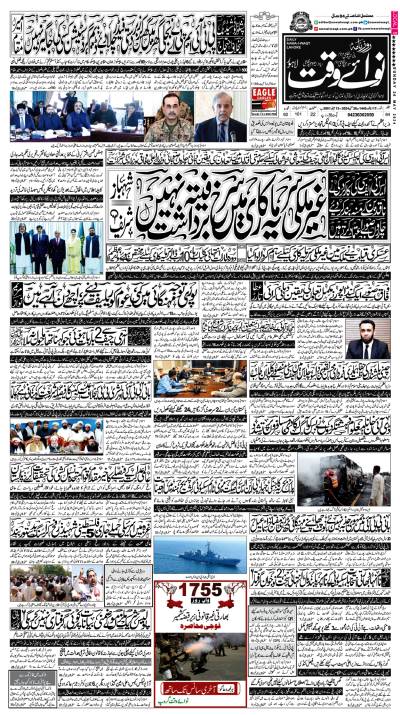ISLAMABAD - The Islamabad High Court (UHC) on Wednesday (today) will resume hearing on a petition of former finance minister Ishaq Dar, who has challenged the accountability court verdict declaring him a proclaimed offender.
IHC division bench comprising Justice Athar Minallah and Justice Miangul Hassan Aurangzeb will conduct the hearing. The division has already barred the accountability court from declaring the former finance minister a proclaimed offender in a reference involving assets beyond known sources of income.
Previously, Qazi Misbah, the counsel for Dar, argued before the court that his client was suffering from a cardiac problem and he was currently in London for treatment purpose. He said the accountability court continued its proceedings against Dar despite submission of a medical certificate to the court.
The counsel contended that the accountability court was conducting the trial of his client in his absence and recording statements of prosecution witnesses. He said his client was not avoiding the court trial but he wanted the trial through his representative due to his ailment.
In counter-arguments, National Accountability Bureau (NAB) prosecutor Imran Shafique maintained that the accused had no such sickness that could prevent him from returning home.
He said that prosecution witnesses were being testified under the criminal procedure. Justice Aurangzeb asked how could a person be declared a proclaimed offender without being given 30-day time for appearance.
Justice Athar asked from the NAB prosecutor whether the department had verified Dar’s medical report in accordance with the orders of the accountability court. The NAB prosecutor replied that the report was sent through the Foreign Office for verification but no reply had been received so far. Justice Athar observed that a medical board should have been formed to examine the medical reports of Dar to ascertain the nature of the sickness.
After hearing arguments from both sides, the IHC bench stayed the trial court’s proceedings to declare Dar a proclaimed offender till January 17.
Dar through his counsel contended that while a petition regarding the issuance of non-bailable arrest warrants for him was pending adjudication, the accountability court had recently declared him a proclaimed offender due to his absence from court proceedings.
The accountability court had issued non-bailable arrest warrants for Dar on November 14, 2017. On November 21, it declared him an absconder and warned his guarantor Ahmed Ali Qudusi that his surety bonds worth Rs5 million would be confiscated if Dar did not join the trial proceedings.
In a subsequent hearing on December 14, the court had declared Dar a proclaimed offender and also sought details of movable properties of his guarantor.
Dar has contended in the petition that the accountability court was proceeding against him without completing the mandatory requirements. He pointed out that the trial court should start the process of confiscation of properties at least 30 days after the publication of the proclamation, however, in Dar’s case, this process was started a few days after the issuance of the proclamation since Accountability Court Judge Mohammad Bashir ‘relaxed’ the rules by invoking Section 17(c) of the National Accountability Ordinance (NAO). The petitioner pointed out that the Supreme Court in the Khan Asfandyar Wali case had discussed the jurisdiction of Section 17(c) according to which a trial court could only invoke the section in appropriate cases and for justifiable reasons.
It said that since the trial court judge was informed that his order invoking Section 17(c) had been assailed before the IHC, propriety demanded that he (the judge) should have waited for the outcome of the said petition. Dar further contended that he was not medically fit to travel back to Pakistan as his doctors had advised him against taking such a long journey. He stated that the accountability court had already asked NAB to verify his medical reports and the bureau’s response was still awaited. He added that the trial court should have waited for the verification before taking such a stern action.





